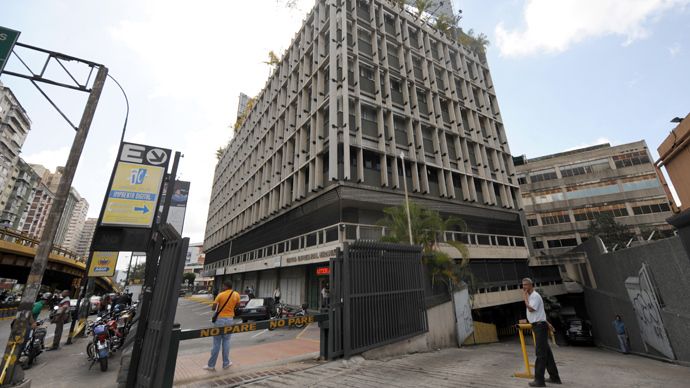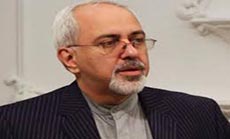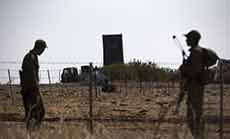
Eye on the Enemy: From the Sea to the River, the Greater land of ’’Israel’’

Egypt as Lebanon, a confrontation line
Ma'ariv - Ahikam Moshe David
Today it is difficult for someone to remember that only few months before the border with Egypt were quiet, almost poetic. The more the events of the neighbor's revolutions in the south progressed, the borders became more and more hostile with a high potential of danger.
Recently, in the wake of fears of infiltration of terrorists from Sinai, the level of security has changed for the towns adjacent to the Egyptian border, which is known now as risky.
At the rear of the concerns, chief of staff Benny Gantz had to redefine the border as a hazardous and hostile border, such as the borders of Lebanon and Gaza. "Israel" has figured that the presence of the Egyptian army in Sinai did not achieve the purpose and terrorism escalates from there. The biggest nightmare for the security service is an infiltration and kidnapping operation, just like the infiltration of terrorists from Lebanon to Kibbutz Misgav in 1980.
Recently, due to the mounting threats and the fears of infiltrations into the towns, a brigade in Gaza decided to boost the level of security in the towns close to the Egyptian borders, which will be known from now on as "towns adjacent to the wall". The towns will be surrounded with a smart wall that will record each trace left and send it to security forces.
The towns that will be the first to have the wall are "Netzarim" and Kadesh-Barnea", and towns such as "Nitzana", "Kmehim", "Ketziot" and "Azouz" will be classified later. Construction of the wall in the towns near the Egyptian border is an addition - without any connection - to the wall constructed on the Egyptian borders as a part of the Hourglass project which will end in a year. Since the redefinition of the Egyptian borders, many troops were sent to what is called "Egypt frontiers"; similar to what occurs on the borders of Gaza or Lebanon.
Infantry brigades of the army, accustomed to the risky borders of "Israel", moved south, and there they are implementing an armistice line in every sense of the word, which includes the installment of ambushes near the wall and the conduct of frequent patrols along the border. In terms of logistics, a permanent base of the "Israeli" army is being established in the region. Lately, another wall was decided to be built in Eilat where an operation took place last August and caused the death of eight "Israelis".
Barak bars Intelligence from FM
Haaretz
"Defense" Minister Ehud Barak refused to allow the head of research for Military Intelligence, Brig. Gen. Itai Baron, to lecture at the annual conference of "Israel's" ambassadors unless the lecture is deemed "unclassified."
Some 100 ambassadors and consuls general will be attending next week's conference at the Foreign Ministry in Jerusalem, which deals with diplomatic and security issues and public affairs. The lectures are given by senior government and military officials. The Foreign Ministry asked Military Intelligence to send Baron to present the annual intelligence assessment to "Israel's" senior diplomats. But for reasons that are unclear, MI decided to seek Barak's permission for Baron to give the lecture.
It's true that Barak did not turn down the request, but presented a condition that stripped the lecture of all value: He demanded that it excludes classified intelligence information. Such a lecture would be very general, of the type normally given at civilian research institutes. Brig. Gen. Itai Baron gave a similar lecture, a month ago, at the national security research institute.
The Foreign Ministry is reportedly very angry at both the "defense" minister and MI, for it gives MI and the "defense" Ministry a great deal of valuable material gleaned by its embassies on issues like the Iranian nuclear program and the situations in Lebanon, Syria and Egypt. In addition, "Israeli" diplomats arrange meetings to military intelligence officers with foreign diplomats at the UN, Washington and other capitals.
"Israeli" Expert: "Israel" Must Deal With Whoever Rules Egypt
Army Radio
The expert on the Middle East, and the orientalist from the Hebrew University, Uzi Rabi, said that the events of Egypt lead to frustration, for we expected a completely different situation, this revolution Atlantic, indicated that expectations were too high, and in the end it was a revolution that didn't meet our expectations.
Rabi added that we must examine the Muslim Brotherhood with caution, because they will determine the future direction of Egyptian politics, as the Islamists are controlling the parliament, and therefore, in this sense, Egypt is in a transition period. Egypt still has a long way to go, a very complicated one, as I suppose that we shall face some complications of this kind too.
Rabi said "Israel" should seek a permanent dialogue with whoever wins the reins of power in Egypt, but it is clear that "Israel" now should not show any endeavor, and I think that Egypt is in a big trouble itself. It is very difficult to predict how the development of the events. Overall, the Egyptian politics will certainly bring to light the Islamic side of the Muslim Brotherhood, and I hope not that of the Salafists, for the approach of the Muslim Brotherhood is clear to us; they also know that the reality is too complex. "
From the Sea to the River, the Greater land of "Israel"
Haaretz, Aner Shalev
It is easy to perceive terror. It is easy to see a terrorist wave. It is easy to discern a breach in security fence on the border of Jordan. It is easy to see a brick thrown into a military jeep. It is easy to discern a mass raid on a brigade base. It is easy to perceive torched mosques. It is easy to detect spray-painted black letters on a wall. But is it easy to decipher their meaning?
It is easy to denounce terror. Easy for the political parties to condemn it. Easy for the army to condemn it. Easy for the rabbis to condemn Jewish terror when he turns against the army. Easy for cabinet ministers to roll their eyes self-righteously and talk about the rotten apples that have suddenly grew here. Easy for the state to wash its hands of this terror. But is it easy to shake off the responsibility for its message?
To recognize terror's message, we must examine what ignites it. This terror is portrayed as revenge for attempts to evacuate illegal outposts. If such outposts, located in the heart of Palestinian population centers, cannot be evacuated based on orders from the High Court of Justice, then no evacuation or withdrawal is possible. So the message is the integrity of the country. But is this message coming only from the youth of the hills?
Education Minister Gideon Sa'ar spoke a few days ago about the dangers of establishing a Palestinian state and called upon the prime minister to reconsider his speech in Bar-Ilan University. After the Palestinian Authority's unilateral bid for UN recognition as a state, its decision to join up with Hamas in Gaza and the growing strength of radical Islam in the region, the idea of two states for two peoples is no longer acceptable, the education minister claimed.
If a minister who does not belong to the radical right believes there is room for only one state between the Mediterranean Sea and the Jordan River, it would be interesting to hear what the more extremist ministers in Likud and the other coalition parties think. But if so, the integrity of the Land is not a message being conveyed exclusively by the hilltop youth. It's a message originating in the government that is now spreading among the public. The idea of territorial compromise, which even rightist governments ostensibly adopted, is fading away before our eyes.
An attentive ear will also discern new and even more chilling nuances. The breach in the fence at Qasr al-Yahud in the Jordan Valley and the subsequent invasion of a Christian structure along the Jordan border are a new kind of threat, directed not only inward, but also outward. The Jordan has two banks, and both are ours, the hilltop youth cried. And we are forced to remember that according to various traditions, the Greater Land of "Israel" includes the bank of Jordan as well.
In the geopolitical sphere, the recent revolutions in the Arab world and the doomsday predictions about the collapse of the peace agreements "Israel" has signed would appear to be good news to the "Israeli" right. No more peace process with the Palestinians, and no more withdrawals and disengagements. Only one state, from the sea to the river. With a bit of luck, we could even have more wars and occupy more land. The chief of staff, Benny Gantz, has already hinted at a possible reoccupation of Gaza.
At a ceremony marking the end of basic training that recently took place somewhere in "Israel", the keynote speaker quoted a Biblical verse. The verse he chose did not come from the prophets' visions of peace and morality. Nor did he speak about our right to the land in the narrow sense of the term. It was a maximalist verse from the Book of Joshua "Every place that the sole of your foot shall tread upon, to you have I given it, as I spoke unto Moses ... From the wilderness, and this Lebanon, even unto the great river, the river Euphrates."
Suddenly, when they speak about one state from the sea to the river, it is no longer clear which river they are talking about. If this is the message being sent by the "Israeli" Army at this very moment, how can we complain about the hilltop youth?
Source: Hebrew Press, translated by moqawama.org



